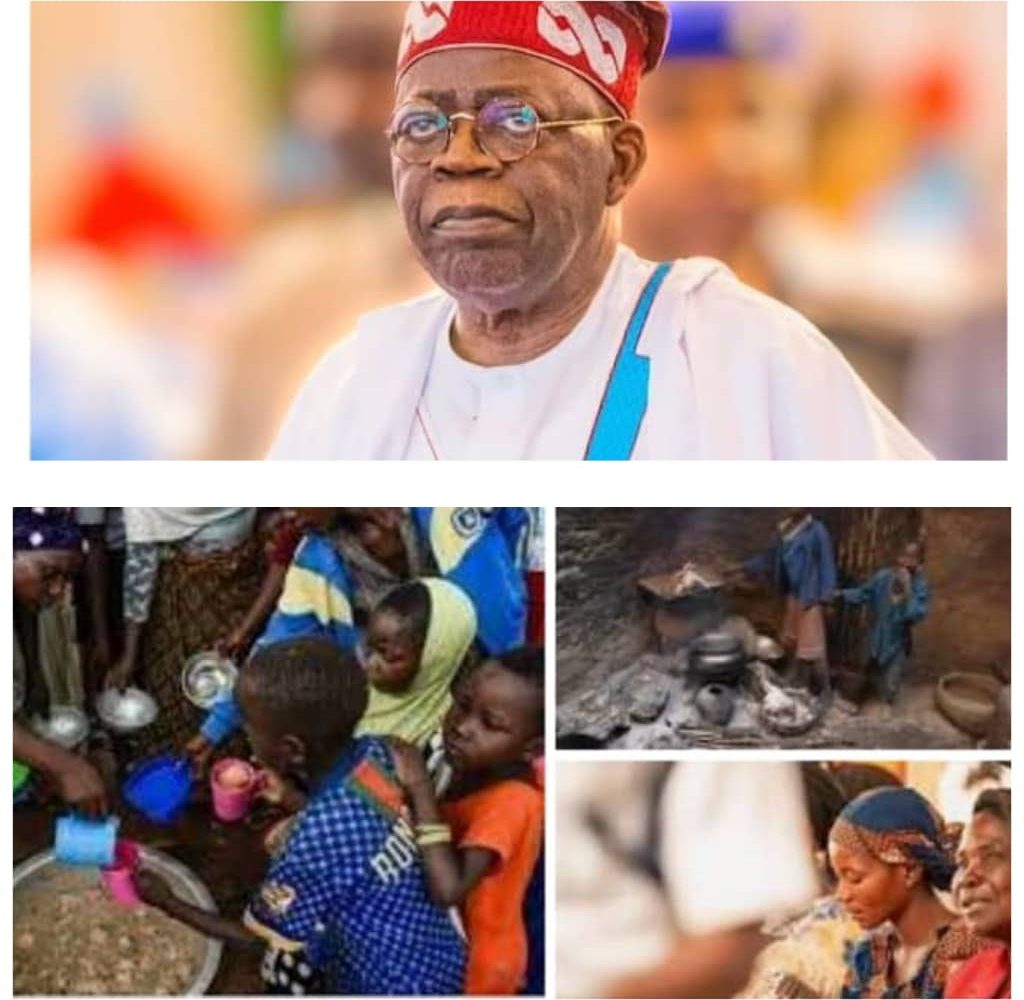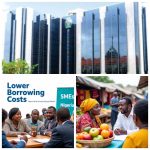By Blaise Udunze.
When the Federal Government announced with much fanfare that it had disbursed a colossal N330 billion in cash transfers to poor Nigerians, I paused, not in celebration, but in disbelief.
Where, exactly, is the evidence of this money? In a country where hunger has become an uninvited guest at most dinner tables, and where 133 million citizens live in multidimensional poverty according to the National Bureau of Statistics, the announcement feels more like a script than reality.
This doubt is not mine alone. The Yoruba socio-cultural group, Ìgbìnmó Májékóbájé Ilé-Yorùbá, has openly challenged President Bola Tinubu to publish the names of the supposed beneficiaries of the N330 billion.
The group alleged that those who benefited were largely members of the ruling All Progressives Congress (APC), dismissing the government’s claim as propaganda.
In a statement signed by its convener, Olusola Badero, and home director, Princess Balogun, the union described the disbursement claim as deceitful and insensitive, especially at a time when citizens are groaning under unprecedented hardship.
Since Tinubu’s first-day removal of the fuel subsidy, the group noted, millions have been plunged into deeper poverty, with small businesses collapsing and families reduced to begging for survival.
The irony becomes sharper when set against the stark numbers. As of 2024, the World Bank estimated that 56 percent of Nigerians, about 129 million people, live below the national poverty line.
Poverty wears a harsher face in the rural areas, where three out of every four dwellers (75.5 percent) are poor, compared to 41.3 percent in urban centers.
By multidimensional standards, 63 percent of Nigerians, or about 133 million people, are poor, with the North carrying the heaviest burden; 65 percent of the poor live there, compared to 35 percent in the South.
These figures also reveal a worsening trend. In 2018-2019, only 40.1 percent of Nigerians were below the poverty line. By 2024, that number had surged to 56 percent, translating into a leap from 79 million poor people in 2018 to 129 million in 2024.
Poverty has not only spread wider, it has also deepened: more than 70 percent of rural Nigerians now live in poverty, and extreme poverty, measured at less than $2.15 a day, has risen sharply since the pre-COVID-19 era.
Inflation, stagnant wages, population growth, and widening regional inequality have conspired to push millions further down the ladder. And yet, against this grim backdrop, the government claims to have poured N330 billion into the hands of the poor.
Last Wednesday in Abuja, the Minister of Finance and Coordinating Minister of the Economy, Wale Edun, proudly declared that 8.1 million households had benefitted under the National Social Safety Net Programme (NASSP).
He explained that the initiative was funded through an $800 million World Bank facility and implemented by the National Social Safety-Net Coordinating Office (NASSCO).
According to him, payments were made digitally into bank accounts and mobile wallets to ensure transparency and prevent fraud.
On paper, it all sounds tidy and impressive. But let’s strip this claim bare. N330 billion is no small change. Spread even thinly, it could pay N50,000 each to over 6.6 million households, enough to put food on their tables, pay some school fees, or restart small businesses battered by inflation.
If that kind of cash injection truly happened, Nigeria’s poorest communities would not be as invisible in relief as they are today. Prices in local markets would show a ripple of improved demand, children’s school attendance would rise, and testimonies of beneficiaries would ring louder than government press statements. But none of this is evident.
Instead, what do we see? Food prices are skyrocketing and hunger is rising, despite official inflation figures showing a sudden ease. Reports of hunger-related deaths are increasing in parts of the North.
Numbers of unemployed youth continue to swell, hustling daily without hope of relief. Farmers are abandoning their farmlands due to insecurity, with no alternative income support reaching them.
If 8.1 million households truly received cash relief, these conditions should at least have softened at the margins. But poverty, like a stubborn shadow, grows larger.
The federal government leans heavily on the “social register,” a database that supposedly identifies poor households. Yet, this register has long been criticized as flawed, exclusionary, and riddled with ghost entries.
Millions of genuinely poor Nigerians in remote villages have no National Identification Number (NIN), no Bank Verification Number (BVN), and no digital trail.
This makes it easy for fraudulent names to make the list while the truly vulnerable remain locked out. Without a credible and sustainable identification system, any talk of mass cash transfers is at best questionable and at worst deceptive.
Who exactly received the funds? Where are they located? Why can’t the government publish a transparent breakdown of beneficiaries by state, ward, and household?
The truth is, impact speaks louder than announcements. If N330 billion genuinely coursed into the veins of Nigeria’s poorest, it would not need defending; it would be visible in fuller kitchens, busier markets, and brighter schools.
Instead, what we have is silence from the supposed millions of beneficiaries, drowned out by the louder cries of hunger and despair from the streets. The government insists the money was paid, funded by the World Bank, and distributed digitally for transparency.
But Nigerians have a right to ask: transparency to whom? Figures without faces, payments without proof, and programs without public validation are little more than statistical theater.
Until the Federal Government provides verifiable data, independent audits, accessible records, and open beneficiary lists, this N330 billion claim remains a story that stretches the limits of believability.
Nigerians deserve not just figures thrown into the air, but proof that public funds are reaching those for whom they are intended. If not proven, the claim remains yet another mirage of relief in a nation where poverty continues to ridicule government pledges.
** Blaise Udunze, a journalist and PR professional writes from Lagos, can be reached via: blaise.udunze@gmail.com









Comment here